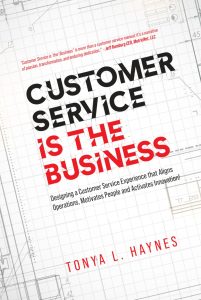
- Homepage
- Customer Service
- The Art of Listening: How Active Listening Transforms Customer Interactions
The Art of Listening: How Active Listening Transforms Customer Interactions
In the realm of customer service, the art of listening is paramount. Effective listening goes beyond merely hearing words; it involves understanding and empathizing with the speaker’s concerns and emotions. Read More
The Power of Active Listening
Understanding Customer Needs
Active listening helps customer support agents understand the root cause of a customer’s issue or concern. By fully engaging with what the customer is saying, agents can uncover underlying problems and provide solutions that truly address the customer’s needs. This depth of understanding is crucial for resolving issues effectively and ensuring customer satisfaction.
Building Trust and Rapport
When customers feel heard and understood, they are more likely to trust the company and feel positively about their experience. Active listening fosters a sense of rapport and connection, which is essential for building long-term relationships with customers. Trust and rapport are especially important in difficult interactions, where empathy and understanding can turn a negative experience into a positive one.
De-escalating Tense Situations
In situations where customers are upset or angry, active listening can help de-escalate tension and resolve conflicts. By listening attentively and validating the customer’s feelings, support agents can calm the situation and guide the conversation toward a constructive resolution. This approach not only addresses the immediate concern but also demonstrates respect and care for the customer’s experience.
Training Customer Support Agents in Active Listening
Emphasize the Importance of Listening Skills
- Highlight the Impact: Train agents on how active listening affects customer satisfaction and overall service quality. Use real-life examples and case studies to illustrate the positive outcomes of effective listening and the potential pitfalls of poor listening.
- Create Awareness: Help agents recognize their own listening habits and biases. Encourage self-reflection and awareness to improve listening skills and overcome common barriers to effective listening.
Teach Active Listening Techniques
- Focus on the Speaker: Train agents to give their full attention to the customer, avoiding distractions and multitasking during interactions. Emphasize the importance of maintaining eye contact (for in-person or video calls) and using positive body language.
- Reflect and Paraphrase: Encourage agents to paraphrase or reflect on what the customer has said to confirm understanding. This technique not only demonstrates attentiveness but also helps clarify any misunderstandings.
- Ask Clarifying Questions: Teach agents to ask open-ended and clarifying questions to gather more information and ensure they fully understand the customer’s concerns. This approach helps uncover deeper issues and provides more accurate solutions.
Handle Difficult Interactions with Empathy
- Train for Patience and Politeness: Emphasize the importance of staying calm, patient, and polite, especially when dealing with angry or frustrated customers. Role-play scenarios to help agents practice maintaining composure and responding empathetically under pressure.
- Validate Feelings: Teach agents to acknowledge and validate the customer’s emotions, even if the issue cannot be immediately resolved. Empathetic responses like “I understand how frustrating this must be” can help diffuse tension and show that the agent cares about the customer’s experience.
Provide Continuous Feedback and Support
- Regular Evaluations: Conduct regular evaluations of agents’ listening skills and provide constructive feedback. Use customer feedback, call recordings, and performance metrics to assess listening effectiveness and identify areas for improvement.
- Ongoing Training: Offer ongoing training and development opportunities to enhance listening skills and keep agents updated on best practices. Encourage agents to attend workshops, webinars, and other learning resources focused on communication and customer service.
Foster a Supportive Environment
- Encourage Open Communication: Create a supportive work environment where agents feel comfortable sharing challenges and seeking advice. Encourage open communication and collaboration among team members to enhance collective listening skills and knowledge.
- Recognize and Reward Excellence: Acknowledge and reward agents who demonstrate exceptional listening skills and deliver outstanding customer service. Recognitions and incentives can motivate agents to continue honing their listening abilities and striving for excellence.
Bottom Line
The art of active listening is a cornerstone of exceptional customer service. By fully engaging with customers, understanding their needs, building trust, and effectively handling difficult interactions, customer support agents can transform service experiences and foster lasting relationships. Training agents in active listening techniques, emphasizing patience and politeness, and providing ongoing support are essential for creating a culture of effective communication and outstanding customer care. As businesses strive to deliver superior service, embracing the power of active listening will undoubtedly lead to more positive interactions, greater customer satisfaction, and long-term success.





